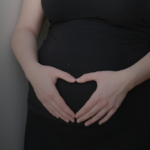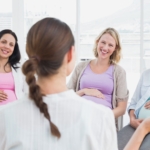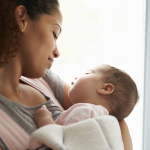Infertility affects an estimated 10%-15% of couples of reproductive age. In recent years, the number of couples seeking treatment for infertility has dramatically increased due to factors such as postponement of childbearing in women, development of newer and more successful techniques for infertility treatment, and increasing awareness of available services. Infertility is perceived as a stressful life event, yet little research has focused on risk for depression and anxiety in individuals with infertility and in those who pursue treatment.
A recent study using an Ontario birth database examined the associations between subfertility, infertility treatment and postpartum psychiatric illness. In this population-based cohort study, individuals without pre-existing psychiatric illness who gave birth in Ontario between 2006 and 2014 (N=786,064) were identified. The researchers then compared risk of postpartum psychiatric illness in there groups: women with subfertility who did not receive infertility treatment, women who received noninvasive infertility treatment (intrauterine insemination or IUI), women who received invasive infertility treatment (in vitro fertilization or IVF), and those requiring no reproductive assistance. Psychiatric illness during the first year after delivery was defined as two or more outpatient mental health visits or an emergency department visit or hospital admission with a mood, anxiety, psychotic, or substance use disorder, self-harm event or other mental illness.
In women who did not require reproductive assistance, postpartum psychiatric illness occurred in 60.8 per 1000 births (6.08%). Compared to this group, individuals with subfertility had a slightly higher risk of postpartum psychiatric illness (adjusted relative risk 1.14, 95% confidence interval 1.10–1.17). Rates of psychiatric illness were similar in noninvasive and invasive infertility treatment groups.
Overall, this study is good news for women with infertility who ultimately conceive. Although this study demonstrates a statistically significant increase in risk of depression among women with subfertility and women who pursue infertility treatment, the increase in risk is very, very small. In another recent study from Tianyi and colleagues (2022), mothers who conceived with reproductive assistance actually had a 13% lower risk of experiencing postpartum depression and/or anxiety than women who conceived spontaneously (adjusted odds ratio 0.87).
Two Important Caveats
While these two studies suggest that the risk for postpartum depression is not substantially increased in women with subfertility who either conceive naturally or with reproductive assistance, we cannot underestimate the psychological impact of subfertility and infertility on women before achieving a successful pregnancy and giving birth to a healthy child. While the research is limited, multiple studies indicate increased levels of depressive symptoms and anxiety in women with subfertility who are attempting to conceive. These symptoms tend to be more prevalent and severe in women who have experienced multiple unsuccessful rounds of infertility treatment and are higher in women who are ultimately unable to conceive despite treatment. Furthermore, women who conceive using assistive reproductive technologies experience higher levels of depression and anxiety during pregnancy.
In addition, the study from Nayan and colleagues only focused on women with no history of psychiatric illness. In women with histories of depression and anxiety, subfertility and infertility treatment represent significant life stressors and put these individuals at increased risk for developing recurrent or worsening symptoms in this context. The situation is further exacerbated by the fact that many women who are undergoing fertility treatment often stop maintenance treatment with psychiatric medications because they are fearful of the impact of these medications on the pregnancy or their likelihood of conception.
Ruta Nonacs, MD PhD
Dayan N, Velez MP, Vigod S, Pudwell J, Djerboua M, Fell DB, Basso O, Nguyen TV, Joseph KS, Ray JG. Infertility treatment and postpartum mental illness: a population-based cohort study. CMAJ Open. 2022 May 17;10(2):E430-E438.
Tianyi FL, Li Y, Alderdice F, Quigley MA, Kurinczuk JJ, Bankhead C, Carson C. The association between conception history and subsequent postpartum depression and/or anxiety: Evidence from the Clinical Practice Research Datalink 1991-2013. J Affect Disord. 2022 Aug 1;310:266-273.








Leave A Comment